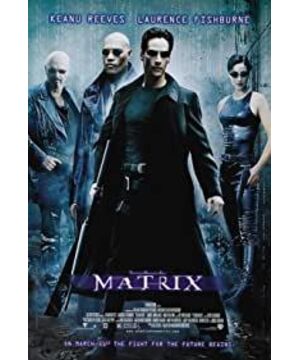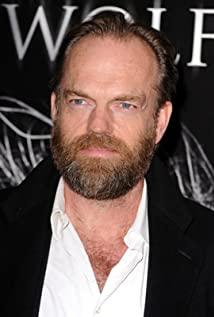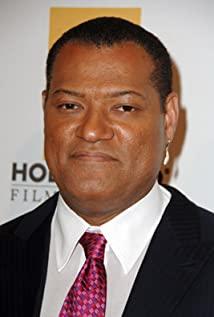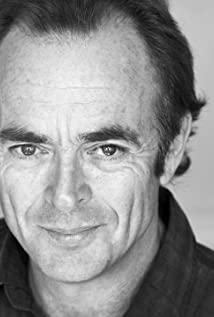---------------------
Perfect era
Author: Sun Bin
Perfect Thinking
This is a perfect era. Perfection does not mean that everything is good and good, but that everything that can be developed has been developed, and therefore all possibilities are exhausted. This era has everything, so people only need to live in the present and live here. Therefore, people no longer have a future, and even if there is, it is just the continuation of the present; people no longer have anywhere else, and even if there is, it is just an expansion of here. If so, then history is over. This is undoubtedly absurd. Because this perfection itself is unreal.
Baudrillard said these meanings more or less in his "Le Crime Parfait" (Le Crime Parfait). No wonder the Wachowski brothers — perhaps the only brothers in Hollywood — would make films like The Matrix. In fact, they are Baudrillard’s supporters. Therefore, when the audience was puzzled by some of the plots at the beginning of "The Matrix I", the Wachowski brothers quietly set a book on Neo’s CD-ROM to be Baudrillard’s "Phantom and Simulation." (Simulacre et Simulation), it implies that everything that has already started and everything that is about to happen is virtual.
So where does this perfection come from? From the brain. In the film, we see that Matrix inputs various data and information into the human brain in the form of electronic pulses, so people have various consciousnesses about themselves and the world. Here, the human body is actually abolished, because any consciousness of the body has nothing to do with the body itself, it is just a stream of electrons that enter the brain. We see a more thorough expression in Putnam's Reason, Truth and History: the brain in the bowl. The reason why the brain is valued by Matrix or Putnam's "evil scientists" is nothing more than because the brain has a special function as a nerve center-thinking. The whole story we have seen begins with thinking, and both truth and illusion are actually activities of thinking. However, what we are more interested in is not thinking as a certain function, but thinking as a certain authority. The mind can give a perfect world and give this world to everyone — to be precise, to people, because everyone has actually disappeared. As a price, the real existence disappeared.
This disappearance reached its zenith in the era given by Matrix—that is, our era. As for its beginning, we have to go back to the establishment of the authority of thinking. At least we must catch Socrates first. In Socrates' view, "virtue is knowledge". This means that virtue, a thing deeply related to the unfolding of life, is attributed to knowledge derived from thinking. Nietzsche saw this, so he lamented in "The Birth of Tragedy" that after Socrates, the thirst for knowledge has inexplicably flooded the entire educated class, and science is seen as the true mission of all wisdom and power. , From now on irreversible; a universal web of thought covers the world, and even hopes to penetrate the laws of the entire solar system. Since then, the logical procedures of concepts, judgments, and inferences derived from thinking have surpassed all other abilities, and have been revered as the most advanced activity and the most admirable talent. The authority of thinking is thus established.
As the founder of modern philosophy, Descartes re-established the basic status of thinking, which is embodied in his famous proposition "I think, therefore I am." However, anything you get from "I think, therefore I am" can only be something in the mind. It is no wonder that Hegel called the period that Descartes began as "the period of rational thinking." In Hegel's view, this period ended with "(German) Enlightenment Thought". For Enlightenment philosophy, thinking is not to reflect the world, but to create the world. Here, reality and truth have actually become the reality and truth of thinking. Therefore, the primary significance of the Enlightenment is not that it changed some attitudes and opinions in the original world, such as its denial of faith, but that it changed the original world itself: it removed all remnants except thinking, So as to establish an orderly, definite, and inevitable world-in short, a perfect world.
Perfect controlIn
this way, thinking as an authority leads to enlightenment. The problem is: Enlightenment was originally intended to disenchant, but while doing so, it strengthened the charm of thinking. Therefore, in the article "Answer to the Question: "What is the Enlightenment"", Kant said anxiously: "The new prejudices, just like the old ones, will become a trap to control the vast population who lack ideas." Thinking can be used. One opinion replaces another, and these opinions control people; what’s even more frightening is that this control may be in the name of liberation.
In "The Matrix I", we see Morpheus fish out the naked Neo from the jar, which is easy to make people feel that this is a liberation. People would think that Morpheus, the god of sleep in Greek mythology, awakened people from the psychedelic of the brain, so the person who got out of the jar was no longer confined in the cage of thinking, but used real eyes, ears, Nose, tongue, and hands bring oneself close to the world in an all-round way, even though the world is just in ruins. This allegorical plot can't help but remind people of those beautiful literary words left to us by Marx in the "Paris Manuscript": People take a comprehensive way, that is, as a complete person, they possess their own comprehensiveness. Nature. Such a person will use all his individual faculties-sight, hearing, smell, taste, touch, thinking, intuition, feeling, desire, activity, love, etc.-to have a human relationship with this world.
However, "The Matrix II" tells us plainly that this is not the case, because Neo is still under control. In the film, Neo meets Architect through the door full of light. Architect told Neo that he was not the first, but the sixth, and as the subtitle of "The Matrix II" indicated, he was reinstalled. This means that he is replaceable, one of many things in the same way. Therefore, this seemingly reborn liberation is fundamentally closer to the vigorous bourgeois enlightenment. Although Neo has established himself as a subject by breaking away from the jar, the individual as the subject is still abstract because of the bourgeois society. The required individuals are atomic individuals, alternative individuals, and such individuals are conducive to improving the efficiency of control. In the film, Neo is the One with extraordinary abilities—just as the name Neo suggests to us, on the one hand, he struggles with Matrix, on the other hand, he unknowingly conspired with Matrix, applying it in the movie In a word, this is his purpose. To some extent, this is why some people think that Neo is an upgrade program for Matrix. Neo, just like his predecessor five, just wanted to make Matrix's control more powerful and effective.
Perhaps this is exactly the purpose of The Matrix. This film has a unique style and makes people feel quite critical. In this sense, Adam Roberts of the University of London would call it "one of the most Marxist films produced in Hollywood." Despite this, the film did not escape the collusion with the bourgeois ideology. We can see that Neo exudes the atmosphere of Hollywood from the inside to the outside. In addition, the strong visual impact of the film is greatly satisfying the consumer senses. At the same time of enjoyment, it also fully embodies Hollywood's commercial standards, and the box office income brought by it has returned to the operation of the bourgeois cultural industry. It should be said that this film criticizes the virtuality of this era in a unique way, but at the same time, it maintains the virtuality of this era in the same unique way.
We remember that in 1948, the Englishman George Orwell wrote a fable novel called "Nineteen Eighty Four." In the novel, any literary and artistic works, including reviews, are produced by specialized practitioners. This production is carried out entirely under surveillance and control. Even those illegal and underground publications are the result of surveillance and control. Said that it was deliberately made illegal and underground to meet the needs of people at all levels of interest. In the novel, this control comes from Big Brother, who is omnipresent and omniscient through the "telescreen". People can feel everywhere: "Big Brother is looking at you", just like the eyes of God in the Middle Ages, you can see all of the world. If in "Nineteen Eighty Four", people can still find the ultimate root-Big Brother, then in "The Matrix", people can no longer know Matrix; if it is said that after the "telescreen" in the former The big brother is omnipresent and omniscient, so the Matrix in the latter is not only omnipresent and omniscience, but also omnipotent.
In this sense, Matrix is a god. This seems to answer the question of enlightenment we just mentioned. Enlightenment uses rational thinking to break the myth, but at the same time it establishes its own myth. This secret was revealed in "The Dialectics of Enlightenment" by Adorno and Horkheimer, they said: "Myth is already enlightenment; and enlightenment returns to myth." This relationship between myth and enlightenment It prompts us to focus on more distant ages, rather than confined to the 18th century movement named after the Enlightenment. Adorno and Horkheimer remind us to go back to Homer's "Odyssey". In their view, "Odyssey" is one of the earliest representative evidences of western bourgeois civilization. In this way, we have discovered the original history of the bourgeoisie in the pre-Socrates Homeric epic, and at the same time, we have also discovered the original history of the authority of thinking. The reason why thinking becomes an authority is not simply because it can satisfy the thirst for knowledge, but because it has an important meaning for the control of the bourgeoisie: perfect control is only in perfect thinking. Enlightenment made this point clear.
We cannot see the Matrix as a god, but we have seen the Architect. Architect is elegant and steady, an authentic gentleman, which seems to be a portrayal of the bourgeoisie. But there is another image of an adult white male, Smith, a sinister and violent guy. These two images portray the bourgeoisie one mile and another. The appearance is gentle and elegant, but the inner nature is greed. This greed points to every other, and brutally replicates every other into exactly the same self.
What will be the result of perfect control? Architect and Smith gave the answer in different ways: identity. We once saw the hideous Smith in Auschwitz, and then saw him in Kosovo, did we also see him in Iraq? After Smith completed the killing and bombing, Architect politely used human rights and democracy to strike a balance, just like a balance equation. In this way, the bourgeoisie copied its present and here to the future and elsewhere.
The perfect collapse
Has that identity really been achieved? Maybe it is, because Matrix is ubiquitous, because our time is too perfect. Everything we do may be controlled, such as the movie "The Matrix" and our thinking, because we are in this era and we cannot surpass this era. Should we be frustrated by this? No, this provides the possibility for a meaningful life, because resisting false perfection is not to reopen a so-called real territory outside its territory, but must be within its sphere of influence. This view comes from Hegel, who warned us in Logic, “Really refutes that we must wrestle with the opponent within the powerful range; attack him outside of him, and advocate where he is not. Rights are not profitable for things." Reality is not something that is readily available, but a possible activity. This kind of activity, at present, is to a large extent refuting and fighting, and it makes our lives meaningful.
When the mind grasps the scepter, it loses the possibility of grasping other things; the stronger the grasp, the more things it loses. In this way, on the one hand, thinking is extremely powerful and perfect due to power; on the other hand, it becomes weak and weak due to too much loss, and even decays and collapses. Therefore, it can be said that the perfect road is also the road of collapse.
The bourgeoisie is on this path because it cannot give up its authority, or that it is authority itself, strong and weak. This situation reminds us of a story told by the American Bertel Allman, who used this story to metaphor capitalism: on an airplane flying across the Pacific, the pilot reported two news to the passengers. "One is good news, and the other is bad news. The good news is that we are flying at 700 miles per hour, and everything on the plane is working smoothly. The bad news is that we are lost." Everything about the bourgeoisie, including cultural industry products produced at a high cost like "The Matrix", makes airplanes fly faster and run better, but this will only aggravate this loss.
At this point, we will come back to watch "The Matrix", which may have another meaning. We will no longer care too much about whether Zion really exists, whether Neo is just a program...the truth of these appearances; we are concerned about the extent to which all this involves our refutation Fight with. We see that the three images of Neo, Morpheus and Trinity seem to appear as a kind of refutation. What they refute is the bourgeoisie—adult white males. They formed a trinity in a sense—just as the name Trinity suggests to us, Morpheus is black, Trinity is female, and Neo’s suspicion and rebellion constitute the bourgeois adult’s The opposite. This Trinity accomplishes some kind of redemption through Neo. The subtitle of "The Matrix III" is Revolution, but I think redemption seems more appropriate, because we are in this era, and Architect and Smith are within ourselves. In this sense, revolution is our self-salvation.
When Neo finally stood in front of Deus Ex Machina, the redemption or revolution began. Neo opened his arms, and the electronic octopus stretched out its tentacles and gently lifted him up. This scene reminds people of Jesus who was sent to the cross. They all want to atone for their sins. The difference is that Jesus was nailed to the body, while Neo was nailed to the brain. This is meaningful. If what Jesus redeemed was the sin of the human body, then what Neo had redeemed was the sin of the human mind. Through the pipeline that penetrates into the brain, Neo enters the world of thinking again.
In this world, Neo and Smith started a life-and-death struggle. However, Neo is destined to be unable to defeat Smith, because if defeated, then this can actually only mean that Mind has won another victory. So we see that Smith finally copied Neo into himself. But this does not mean Smith's victory, because at this moment, Neo opened himself up and became a way of redemption. Smith can only copy the self. What he asks for is more self, but he forgets that the self is relative to the other. If there is no other, then the self will not be the self in fact. The copying of Neo not only means the death of Neo, but also the demise of Smith. As a result, Smith broke into pieces in pain and dissipated in the vast rain. However, I'm afraid Smith didn't understand why this ending happened until he died, because he only knew how to achieve himself in one way: the affirmative way. But Neo has achieved himself in another way, a negative way, which is sacrifice. His sacrifice completed the salvation of the mind. Neo died, but he was liberated, liberated from control. In this sense, we say that he has survived, at least he has survived. Those who live under control seem to have never lived.
The film is over. But this era is not over, refutation and fighting are not over. In "The Matrix I", we saw, "Human, know yourself!" The motto of the Temple of Delphi appeared in Oracle's house. We need to know ourselves, but this understanding is not simply an activity of thinking, because people have life, and the unfolding of human life is the full explanation of people, and people use their own lives to know themselves. Oracle said at the end of the film that she didn't know, she just believed. Perhaps this can be regarded as another way of knowing yourself.
In this perfect age, even though the bourgeoisie is copying itself crazily under the guise of globalization, we are not frustrated. As Oracle said, everything has a beginning and an end; at the same time, we are not doing nothing, we refute and fight with our own voices. Revolution is not a fix once and for all. Revolution is a plural, a continuous undertaking. This is our life, this is the unfolding of the times.
View more about The Matrix reviews











